|
Through the halfway point in the fall semester, most any college student could testify to the highs and lows of trying to learn in these trying times. From Internet issues, Zoom exams, and burnout, each class that goes smoothly is a little victory, but some days it is just so hard to focus on classes. My inner biochemistry major wishes that learning by osmosis was possible – a passive learning because our attention is drawn to so much distraction. On the other hand, even though it requires a little more active thought, I know there’ve been some highs so far this semester. Even with social distancing, I have made new friendships and renewed others. Since I serve as a Resident Assistant at my university, where we have just freshmen and RAs on campus, I have gotten to see freshmen build friendships, find their niche, and take on leadership positions in the campus community. Through my personal experience and seeing the freshmen on my campus, a word to describe the semester so far would be “perseverance.” For me, perseverance has been continuing along the path of learning despite the challenges and difficulties. I have worked to develop four actions into habits during this semester to help build perseverance:
Ultimately, I hope to continue building upon these four actions for the rest of the semester to help strengthen my perseverance and to experience more highs than lows from this abnormal time. To help motivate me to keep going day after day in classes, I wrote this quote above my desk: “Nothing great is ever achieved without much enduring” – St. Catherina of Siena For more resources to grow spiritually during the COVID-19 pandemic, please click here.
0 Comments
During my fifth year with D.C. United, the team brought in a nutrition specialist. The specialist gave his presentation and then looked toward a table in the middle of the locker room that held about 40 pill bottles of vitamins, supplements, mild pain relievers, gels, powders, and who knows what else. The nutritionist then walked over to the table, looked back to us, and said, “you know, if you just eat well you can throw all of these out. In fact, you’d be better off doing that.” He left the locker room five minutes later and never came back. For my first five years at DCU, I had been taking those vitamins and supplements at the recommendation of our strength and conditioning coaches and athletic trainers. Now a certified nutritionist deemed the whole thing a waste of time and had even said they could hinder our performance—I wondered what exactly to do. Who should I listen to? This memory has stayed with me because it matters a lot for an athlete what you do with your body. It matters how you train, eat, sleep, relax, and recover. You need to know what is helpful for your athletic development and what is unhelpful. I wanted to know if the pills and supplements helped me or hindered me. This all applies to athletic prudence in the natural realm. Prudence is the ability to judge rightly and act according to that knowledge. It is being able to think through things correctly and then make the right choice. Thus, athletic prudence is the ability to choose and act rightly in the realm of an athletic pursuit. We make decisions and then act based upon what we have concluded is actually helpful or unhelpful in relation to our goal. I would like to apply this same line of thinking to the virtue of prudence in the supernatural realm. We should be asking what is helpful or unhelpful in terms of our spiritual lives. Just like the nutritionist condemning our pill vault and making me wonder what was actually helpful for my soccer career, we should ask what in our lives helps or hinders us from going to God. In order for us to do this, of course, we must acknowledge that God is both our goal and a worthy (the most worthy!) goal at that. When I got to the height of my playing career I was devastatingly depressed for a very concentrated span of time (only several days). For months I pondered why I hit such a low point amidst more success than I had ever expected. Eventually, through the help of the Holy Spirit, I realized that God allowed me to feel the weight of my success without Him. It was an incredible grace—but also one that was difficult to really learn. Over time the truth that my soul was more important than my sport sunk in. I realized that much of what I had made my life about was, in the end, unhelpful for reaching the ultimate Goal who is God. I started applying my athletic thinking to my spiritual life. I started asking the right questions—is this helpful or unhelpful for my spiritual life? Should I be hanging out with this group of friends so much? Are my weekend habits really bringing joy to my life? Am I living as the person I want to be? Do I know who I want to be? These questions led—and continue to lead—me to Jesus, and I find myself needing to ask them again and again. Do the decisions I make help me become who I want to be? Or are my decisions hindering me from being that person? Athletic prudence helps athletes maximize their potential and use their God-given gifts to the best of their ability. This same principle can—and should—be applied to our spiritual lives. Are the decisions, actions, and principles that guide my life helpful? Are they leading me in a good direction? Prudence, says St. Thomas Aquinas, is the mother of the virtues. You cannot possess any virtue without the virtue of prudence because prudence is what enables us to recognize what is truly good (helpful) and then act according to that good. No athlete can become great apart from athletic prudence because athletic prudence enables the athlete to recognize and act upon what helps him or her become a good athlete. Far more important, however, is the realization that no person can become who they were created to be apart from supernatural prudence. It is not possible to follow Christ without first asking yourself what exactly it is you’re already following—what is it that shapes your decisions? It may be a desire for comfort, power, status, honor, wealth, success, popularity, or any number of things. But they all fall short. To be prudent you must know the end goal. You cannot attain the virtue of prudence in the whole of life without knowing that “it is Jesus in fact that you seek when you dream of happiness.”  Taylor Kemp is an instructor for the Denver Catholic Biblical School as part of the St. John Vianney Seminary Lay Division in the Archdiocese of Denver. He is a former professional soccer player, amassing over 100 appearances over six-years in Major League Soccer (MLS) for D.C. United, and playing for both the youth and full United States Men’s National Team. Taylor holds an MA in Theology from the Augustine Institute and BS in Business Management from the University of Maryland, College Park. In high school we had a religion teacher, named Mr. Matthews, who used to tell us not to worry about memorizing anything from his class but these words: “Love God with your whole mind, heart, soul and strength. Love your neighbor as yourself.” He would say, “If you come back and see me twenty years from now, I’ll be happy if those words are all you remember.” Mr. Matthew’s motto was inspired of course by Matthew 22:34-40, which happens to be today’s Gospel reading for the [Optional] Memorial of Saint Louis of France. In this text, Jesus clarifies that love of God and love of neighbor are the two greatest commandments on which everything else depends. To put in another way – without love, we are nothing (1 Corinthians). The pandemic has shown just how much we need this love in our world. And while it may be challenging to connect with one another right now, there are still ways we can share love with others from wherever we happen to be. Three Small Ways of Loving God
Three Small Ways of Loving Neighbor
Remember also, we are called to “love your neighbor as yourself.” During this unique and challenging time, are you taking care of your own spiritual, emotional, and physical needs? If you aren’t sure, it may be worth spending some time today writing down a short list of ways you can practice healthy self-care. If you liked this article, be sure to check out “Living the Corporal and Spiritual Works of Mercy During COVID-19” and “Mental Health and Coronavirus.” What image comes to mind when you hear the word conversion? To many, the words of those who encountered Jesus in his earthly ministry may come to mind. Conversion may sound like the cry of the Samaritan woman in John’s Gospel: “Come and see a man who told me everything I have done. Could he possibly be the Messiah?” (John 4:29). Perhaps Caravaggio’s The Conversion on the Way to Damascus rises to the surface, an expression of a dramatic scene illustrated with a few artistic liberties. Still, we may associate conversion with a story like St. Augustine: a turning from a former life of debauchery or sin to a life lived in pursuit of God. Because of the art that is important to our faith, cultures, and families, we may assume conversion to be a dramatic, “lightning-bolt” moment: brief, intense, supernatural, and immediately transformative. While our tradition does speak of the reality of dramatic conversions, conversion itself is often more gradual and organic. For those of us whose lives have not yet become hagiography, what does conversion look like? More particularly, what does conversion look like for us in this particular moment, in our current context of history and life? First of all, what is conversion? Conversion, according to the Catechism of the Catholic Church, is “a radical reorientation of our whole life, a return, a conversion to God with all our heart, an end of sin, a turning away from evil, with repugnance toward the evil actions we have committed. At the same time it entails the desire and resolution to change one's life, with hope in God's mercy and trust in the help of his grace” (CCC, #1431). It is “first of all a work of the grace of God who makes our hearts return to him,” and is not “aim[ed] first at outward works, ‘sackcloth and ashes,’ fasting and mortification, but at the conversion of the heart, interior conversion” (CCC #1432 and #1430). In other words, conversion is a movement away from sin, a re-ordering of priorities with Christ re-categorized as the center of our lives. It is something that occurs through supernatural grace and the initiative of the Holy Spirit, first changing our hearts and minds, but through our cooperation, manifests itself in everyday actions or “visible signs” (CCC #1430). The process of conversion, for most of us, is not instantaneous; rather, it usually a slow, gradual process that involves daily recommitment and practice. In a 2017 audience, Pope Francis reflected on the gradualness of conversion this way: “Avoiding evil and learning to do good: this is the rule of conversion. Because being converted doesn’t come from a fairy who converts us with a magic wand: No! It’s a journey. It’s a journey of avoiding and of learning.” As Pope Francis highlights, conversion can be as simple as learning something new. It involves openness to re-orienting our priorities, changing our opinions, reconsidering our worldview, and engaging with the truth. However, the gradual process of conversion doesn’t start and end with us; it is always oriented towards the building up of humanity and being brought more deeply into right relationship with God and one another. Conversion always has a social and relational impact. As the Catechism of the Catholic Church notes, “Conversion is accomplished in daily life by gestures of reconciliation, concern for the poor, the exercise and defense of justice and right, by the admission of faults to one's brethren, fraternal correction, revision of life, examination of conscience, spiritual direction, acceptance of suffering, endurance of persecution for the sake of righteousness” (#1435). Our actions towards our neighbors, God, and the world around us is where our conversion is realized and bears “fruit that will last” (John 15:16). Conversion has both vertical and horizontal dimensions to it; it calls us to recognize ourselves as Beloved children of God, and, at the same time, recognize this Belovedness in our neighbors more clearly as a result of the transforming love of God. We are called to learn more, think more deeply, and consider more thoroughly, especially when the common good of our neighbor is at stake: “It follows that Christian conversion demands reviewing especially those areas and aspects of life ‘related to the social order and the pursuit of the common good.’” (Evangelii Gaudium, 182). When we say that the Christian life is one of on-going conversion, we simply mean this: we are called to learn of our and our neighbors’ Belovedness over and over again and re-commit to it each day. This learning is not merely intellectual, but is also a deep education and formation of the heart and soul that spills over into our concrete lives. In our period of history and social context, conversion may be less dramatic and more gradual for most of us than some of the saints and figures of our faith. However, that does not mean that it is any less exciting! Our personal process of conversion can start as the size of a mustard seed, and grow into a deeply authentic faith that changes the world: “An authentic faith – which is never comfortable or completely personal – always involves a deep desire to change the world, to transmit values, to leave this earth somehow better that we found it” (Evangelii Gaudium, 183). What is going on in our world and in the lives of our neighbors that is calling us to conversion? What new things or viewpoints are we being called to learn or unlearn to realize our Belovedness and the Belovedness of our neighbor? How can we be more open to living a life of ongoing conversion?
“The beginning of all effort is the recognition of what is.” -Romano Guardini, Learning the Virtues That Lead You to God, 1963 Professional athletes do many appearances while playing. We get paid to show up at fundraisers, youth camps, watch parties, and promotional events. Something that is practically a guarantee when attending these appearances is one or more sets of parents coming up to tell us about their child who plays soccer. Often these conversations are quite enjoyable, but almost inevitably, there are a few who want to talk about how their son or daughter was short-changed in their youth soccer experience. There is a lot that these parents say to us, but the consistent element is: my child didn’t succeed because of some external factor. This may very well be the case for some of them. It is equally true, however, that it is certainly not the case for all of them. Much of the time the boy or girl just wasn’t good enough for a particular team, level of competition, or system of play. The point of this post is not to drop the heavy hammer that many kids run out of the athletic ability rope and should give up. No, this post is about the absolute necessity of taking an honest stock of where someone actually is--especially for the spiritual life. Romano Gaurdini says that “the beginning of all effort is the recognition of what is.” The reason for this being that you cannot begin making the effort to improve unless you start with who you already are. Any professional athlete will tell you that it is far more helpful to be taught how to assess and address weaknesses rather than to pretend they don’t exist. In fact, most professional athletes are fairly obsessive about identifying areas in their game where they can improve. If I determine I’d like to be a better shooter with my right foot, for example, then I must begin with the harsh—but necessary—reality that I can barely complete a pass with my right foot. If I never acknowledge my current ability, I’ll constantly run into problems—poor technique, inadequate fundamentals, and so on. I’ll never become a strong shooter without addressing the plain truth of my current ability. This is a skill that requires disciplined practice and will never simply be acquired because I want it to be so. First comes acknowledgment, then a plan for improvement, all for the hope of becoming a good right-footed shooter. This same principle can and should be applied to our spiritual lives. Just as improvement can only take place in athletics by beginning with where an athlete currently is, spiritual advancement can only begin by taking an honest assessment of where one currently is in relation to God. This means you’re far better off admitting that you struggle to pray for 5 minutes and taking that to God than wondering when you’ll receive the Stigmata. It is far more helpful to search deep within yourself and locate and name your pride, selfishness, ego, envy, or lust than only present to God your most pious and holy thoughts. He knows your heart already—He’s just waiting for you to know it as well. One of the most helpful exercises for high-school, collegiate, and professional athletes is to watch film in order to identify strengths and weaknesses. The team watches the most recent game in order to see what needs to be addressed that week in practice. This same concept can migrate into our spiritual lives—we look for points of departure and development in order to draw nearer to God. This practice is not to discourage but to improve. There’s no shame in acknowledging ourselves as we really are. In fact, God can really only begin to heal us once we acknowledge where we are hurt. The Physician cannot tend to our wounds unless we let Him see them. Several days ago, I was talking to my wife about this concept and she brought up how watching film for athletes is similar to the examination of conscience recommended by the Church. Examining one’s conscience on a regular basis is like looking back over the tape to see the strengths and the weaknesses—the graces and the sins—in order to grow. Then, with this self-knowledge, we can go to God, say thank you, and ask for forgiveness, trusting in His merciful love. God looks down on us and loves us as we are, but He also promises that His love is transformative. He looks down and says, “I love you,” while at the same time calling us higher. He wants us to identify what is so that we may cooperate with His grace and begin the beautiful work of improvement. This we call sanctification. May we all be willing to look at ourselves honestly—as we really are—so that we enter into the effort that is the fight of faith (cf Jude 3), trust that God’s grace is sufficient (see 2 Cor 12:9), and become the saints Jesus Christ died for us to be.
I watched her curly little head bounce away from me further down the hiking path and around a bend, out of my sight. I knew her older brothers would slow down so she could keep up with them, taking her under their wings. In the midst of a global pandemic, the woods were a safe space, open and free from the danger that seems to lurk everywhere these days. Nonetheless, my heart rate picked up along with my pace. What if a stranger was on the path? What if she fell and got hurt? I couldn’t see the path ahead, and I was afraid. I hurried along, my anxiety increasing as my steps forward failed to lead me to a view of my children. My thoughts turned dark while the woods around me became bright. Trapped in my own head, I failed to notice the sun breaking through, filtering light through the treetops. Until—there! The sunshine reflecting off of my little girl’s sequin covered sneakers allowed me to catch a glimpse of my babies. “Red light!” I yelled, in our family shorthand for “stop-moving-your-body-immediately.” The birds scattered, startled. My children froze in place as they waited for me to catch up with them. As I knew they would be, the boys were watching closely over their little sister. Taking her by the hand, they coached her through the mud and over the fallen branches. “See, Mama? Pretty!” my curly little girl exclaimed, joyfully depositing semi-crushed wildflowers into my hands. After rubbing her nose against mine, she joined her brothers on a moss-covered log, not registering my fear for even a moment. Exhaling a sigh of relief, I praised God in joy for great big brothers, my safe little girl, and a Father who is Light, illuminating the way. In this season of uncertainty, I find myself living that moment on the hiking path time and again: rushing forward, afraid, unable to see what is ahead. My days are filled with research and passionate conversation about schooling, and what the right choice for our family will be this fall. We deliberate over each barbecue invitation and mourn the loss of birthday celebrations that will never come to life. Parenting in a season where change is the only constant is overwhelming. I’m living that moment on the hiking path again: where I could not see, there was light. Though I was afraid, the Father was before me, protecting my little ones. So now, instead of remaining trapped by my thoughts, I am pursuing His power and protection. I am practicing seeking the light. In his letter to the Colossians, St. Paul reminds us that we can live in joy even in the midst of hardship, and he shows us how: “[We are] strengthened with every power, in accord with His glorious might, for all endurance and patience, with joy giving thanks to the Father who has made you fit to share in the inheritance of the saints in light. He delivered us from the power of darkness and transferred us to the kingdom[...]”(Colossians 1:11-12). Joy is a pursuit. By God’s great mercy, we are called out of the darkness and into the light. We are invited to share in the inheritance of the saints, if only we can pursue His power and glorious might instead of depending upon our own. When left to myself, I abandon joy for the hopelessness and despair that seems to permeate the world during this pandemic. However, when I pursue the heart of Christ, I am promised endurance and patience. I am equipped to face the reality of a sick and broken world and to remain unbroken by its weight. In His power alone, joy still abounds. Joy is a practice. Turning hands full of crushed wildflowers to praise comes with intentionality. So: let us train ourselves to joy. When we feel the dark closing in on us, we are called to joyfully give thanks to the Father and to seek His fingerprints that so graciously mark our lives—to acknowledge His many gifts. When the trees block our view, let us enjoy the sunshine filtering through their branches. When the path is rocky and unsure, let us acknowledge that He walks alongside us, and before us. When we suffer through sickness, hardship, and isolation, let us hope in God who has overcome suffering once and for all. This is joy. Grace-filled moments of contentment, happiness, peace, safety, and hope that we open our eyes to experience, even in the midst of the dark. Where happiness is fleeting and circumstantial, joy is ours to keep no matter the circumstance. Along this path I will stumble and fall. Joy will evade me as I am burdened by fear and uncertainty. But I will allow the Lord to raise me up, seeking the joy He offers me despite my skinned knees. Like my curly girl, I choose to trust that I am not alone. I choose wildflowers and light. I chase joy.
“Joy is prayer, joy is strength, joy is love, joy is a net of love by which you can catch souls.” -St. Mother Teresa of Calcutta Throughout history, mankind has endured plagues, wars, and all sorts of crises that threaten our existence and make the day to day seem unbearable. In these past several months, the world has experienced the global effects of the novel coronavirus pandemic. Our country is also facing ramped up civil unrest. However, as Christians we are called to persevere with joy. As James 1:2-4 exhorts us: “Count it all joy, my brothers, when you meet trials of various kinds, for you know that the testing of your faith produces perseverance and perseverance must complete its work so that you will become fully developed, complete, not deficient in any way.” We can look back over two millennia and witness the hope that has always been present in the darkest of circumstances. Over and over, God our merciful Father remains with us, equips us with strength, and encourages us to dwell with Him in order to endure all things with joy. Furthermore, we have many examples of holy men and women who have stood steadfast in faith through great trials as joyful ambassadors of God’s love and mercy. During these times, I have felt the pangs of doubt, discouragement, and fear. I am completely aware of my smallness and my vulnerability. I keenly recognize that I need help so that I can find peace amidst hardship and uncertainty, and I daily choose to pray for guidance and courage to walk in faith. I am grateful for parents who raised me in the Church, taught me the power of prayer, and nurtured me in an environment of faith. I am grateful for my parish family who stand together to build up the Body of Christ in our community. I am grateful for a stalwart husband who shows me daily how to immerse myself in the loving arms of Jesus by attending Mass, reading Scripture, praying devotions, and asking for the divine blanket of protection and provision that only comes from Him. I am grateful for my married children who witness their sacramental love to all by living their marriage covenant. I am grateful for children who share their gifts to fill our home with laughter, creativity, and beauty. I am grateful for grandchildren who are joyful and full of curiosity and excitement and so easily make me forget about the troubles of the world. I know that I am puny, weak, and small, but God made me for love and reminds me through all these people—and many more—that He is always with us, giving us what we need to gallantly march through the nitty gritty of life. This gives me cause for great joy! How we behave determines the success of our mission as ambassadors for Jesus. We are told in Scripture to remain in God and to use the gifts of the Holy Spirit to navigate the messiness of this life. We are commanded to love God, others, and ourselves no matter the circumstances. The fruit of living in love is a joyful countenance. When we practice surrendering our doubts and fears and choose to act in faith and love, peace is a direct outcome. When we live out of an attitude of peace, we are unbound and able to exhibit joy in all things. St. Teresa of Avila encourages us: “Let nothing disturb you, nothing frighten you, all things are passing, God never changes. Patient endurance attains to all things. Whoever possesses God is wanting in nothing; God alone suffices.” As Christians, we are called to be the living reflection of our Lord and Savior. As we traverse this particularly troubling time, we strive to be beacons of hope to those despairing, lost, and without a foundation of faith. We are all commissioned to share the love and mercy of God to all we come in contact with. It is not a suggestion, but a mandate from our baptism. No matter how inadequate we think we are, if we surrender to God’s will, He will supply all we need to make any situation bearable and even joyful. There may be uncertainty, strife, devastation and hardship around us, but the heart of Jesus, who is all love, is within the soul of each of us. We are called to make it manifest through our acts of kindness, gentleness, patience, forgiveness and service. Each of us, one individual at a time, has the power to bring peace and joy to others as we continue to navigate the day to day. Below are some practical tips for remaining steadfast in faith and witnesses of joy:
Together, each of us mere mortals can build an environment of joy—a joy which will make all the difference in our hurting world. The Easter season assaults the physical and spiritual senses, calling the body and soul to unite as we share in a mere glimpse of the eternal life that was offered to us when the gates of paradise were opened on that beautiful Easter morning. Typically around this time, the smell of the Easter flowers adorning the sanctuary remind us of new life. The scent and sight of the burning incense and candles rising to heaven with our humble cries of “Sanctus, Sanctus, Sanctus” remind us of our prayers going up to the altar of God. We reach our fingertips out to touch the droplets of water washing over us and are reminded of our baptismal promises. The reception of the Eucharist leaps past our lips and dances on our tongue as we are engulfed, body and soul, by the true presence of our risen Lord. “Alleluia!! He is RISEN!! Where, oh death, is your sting?!” The words resound from the core of our being and echo through our hearts, escaping our lips in cries of exaltation. A few short weeks ago, these words were uttered from the speakers of televisions, laptops, and phones as we ushered in the Easter season as a Catholic family and community during the coronavirus pandemic. The tangible nature of the Catholic faith and the deep-rooted sense of community that the Easter season brings made this a difficult celebration for many of us. This rich season is a beautiful fifty-day celebration spanning from Easter Sunday to Pentecost. What a challenge it is, though, to maintain our joy when our hearts feel heavy and our senses yearn to be submerged in the deep traditions and rituals of our faith. “I am a practicing Catholic”. We may have uttered these words at various stages throughout our life for various reasons. Perhaps this simple phrase is the key we inherently possess to bridge the gap we may be feeling and provide much needed balm to our weary spirits and aching senses. As many of the doors of our church buildings closed for the safety, protection, and health of our communities, the foundations of the domestic church have begun to shine forth. For many, our homes have become the sole place for worship, praise, and spiritual communion, and we find ourselves face to face with the deep reality of Saint Paul’s words in his letter to the Corinthians. “For we know that if our earthly dwelling,* a tent, should be destroyed, we have a building from God, a dwelling not made with hands, eternal in heaven…For in this tent we groan, longing to be further clothed with our heavenly habitation…So we are always courageous, although we know that while we are at home in the body we are away from the Lord, for we walk by faith, not by sight” (2 Cor. 5:1-8). And so the words, “I am a practicing Catholic” tumble around deep in our beings as we seek to uncover the answers that the groaning spirit within us already understands. We can “practice” our Catholicism in a new, perhaps, different way during this time. Do we know the power of our habits? Our habits form and inform both the nature of how we approach our days, as well as the manner in which we respond to catalysts in our daily life. What do you automatically do when you wake up in the morning? The action steps that you take both consciously and subconsciously are habits and routines that you have formed over time to serve you in preparing to approach the day that lies ahead. There are two main instigators that cause us to revise and/or disrupt our habits: the desire for change or a need to adapt due to changing circumstances around us. Perhaps at this time both of these instigators are merging to grant us with a divine opportunity to draw ourselves closer to God. Within the very practice of our Catholic faith lie “habits” called virtues that can be practiced, developed, and deepened to help us grow closer to God and to fortify our relationship with Jesus Christ through the divine assistance of the Holy Spirit. The Catholic virtues are a beautiful way to continue to explore, celebrate, and proclaim the spiritually tangible aspects of our faith. By embracing these changing circumstances around us through a contrite desire to grow in virtue, concrete decisions and actions can be taken to deepen our virtuous life. In doing so, we strive to unite our physical actions and spiritual practices to grow in virtue while cultivating our domestic churches. If, therefore, we can embrace this time in our history to strengthen our virtuous resolve to truly anoint our lives and those around us with a real presence of the Living God, perhaps we may find that, although the doors of our earthly buildings have been temporarily closed, we can embrace the opportunity to unite our voices with the cries of the saints of heaven: “Alleluia! He is Risen!” “Our hearts are burning within us!” “My Lord and My God!” A few weeks ago, the Pew Research Center released an article titled “Just one-third of U.S. Catholics agree with their church that Eucharist is body, blood of Christ.” Immediately after the study’s release, social media erupted with reactions of disbelief, shock, and anger, as well as theories of how to “fix this,” including greater catechesis and adjustments to our general liturgical practices. Despite the immediate reaction, there is no need for panic, as Christ assures the Church that “the gates of the netherworld shall not prevail against it,” (Matthew 16:18). Furthermore, jumping to such dire conclusions after one survey is not necessarily good pastoral or catechetical practice. As the Church examines the status of belief in the Real Presence and how to cultivate a greater understanding of that reality, she is also very aware of the need to deepen our encounter with Christ. As we ponder Christ’s presence in the Eucharist, we must ask ourselves if we have truly encountered him. In his encyclical letter Evangelii Gaudium, Pope Francis suggests that we “look at those first disciples, who, immediately after encountering the gaze of Jesus, went forth to proclaim him joyfully: ‘We have found the Messiah!’ (Jn 1:41).” In the end, how we catechize and what our liturgical practices are both require deeper reflection and greater discernment as to how God is calling us to use them as methods of ongoing conversion and evangelization. The doctrines and dogmas that we teach, how we celebrate the Mass, how we best serve our fellow man, are all likely to fall on deaf ears if they are not built on a deep and personal encounter with the Risen Christ. To examine this issue of Eucharistic belief, we should first look to chapter 4 of Christus Vivit, where Pope Francis reminds young people (and all of the people of God) that God is love, he saves us, he gives us life, and he is alive! If these four truths, which are expounded upon in good catechesis and experienced in their fullness in the Mass, are not understood deeply and intimately in the heart of every baptized Catholic, then moving forward will be extremely difficult. If I do not know Christ as the one who saves me, who walks with me through my life, as the one who gives me life, then why does it matter if it is truly his Body and Blood that I receive in its fullness at the Mass? Similarly, if we don’t understand the Kerygma—the mystery of the salvific work of God culminating in the passion, death, and resurrection of Christ—then how can we begin to understand the mystery of transubstantiation (CCC1376), especially when philosophical distinctions like matter and form aren’t in the everyday vocabulary of most Catholics? Pope Francis reminded pilgrims of this reality during a November 2017 General Audience when he said, “Every celebration of the Eucharist is a ray of light of the unsetting sun that is the Risen Jesus Christ. To participate in Mass, especially on Sunday, means entering in the victory of the Risen, being illuminated by his light, warmed by his warmth.” Pope Emeritus Benedict XVI famously wrote in his encyclical letter Deus Charitas Est, “Being Christian is not the result of an ethical choice or a lofty idea, but the encounter with an event, a person, which gives life a new horizon and a decisive direction.” I certainly don’t have the “easy fix” answer as to how to increase belief in the real presence in the Eucharist, but I heartily believe that it begins with a renewed sense of the encounter Pope Benedict XVI was writing about. We use the word “renewed” because even those of us who profess our faith in the Risen Lord are invited “to a renewed personal encounter with Jesus Christ, or at least an openness to letting him encounter them; I [Pope Francis] ask all of you to do this unfailingly each day” (Evangelii Gaudium). We must witness to the encounter that has given our lives “a new horizon and a decisive direction,” and share that with those whom we meet. When we accompany our brothers and sisters on their journey to know Christ more fully, we help them to encounter him in the way that the Holy Spirit guides them. If that encounter is through theological and philosophical distinctions, through service, through the liturgy, etc. then praise God, because it is through him that those are effective and not because of their own merits. As we continue to wrestle with this recent study and its implications, may we meditate on this: if we believe that the Eucharist changes us, strengthens us, heals us, then we must show it, we must witness to it authentically and humbly in all circumstances. Throughout my studies at The Catholic University of America, I had the opportunity to witness and participate in the sacred traditions and rites of various religious orders I would never have encountered back at home. A great blessing of my place of study was the constant flux of various clergy, seminarians, and religious throughout campus who were undertaking a degree program or simply passing through campus in their respective ministries. God bless the Franciscans, Little Sisters of the Poor, Marians, Sisters of Life, Sisters Servants of Mary Immaculate, Pallottines, and the Missionaries of Charity, to name a few, who joyfully lived out their vocations—inspiring observers to get to know them and their spiritualties and facilitating an encounter with the Lord.
In God’s providence, I frequently found myself at the Dominican House of Studies at the far side of campus and was able to join the community of brothers and priests in their night prayers and certain liturgical celebrations which were open to the public. Personally, I found the house to be a commanding presence and a bit daunting on the inside: the intellectual prowess of the Order of Preachers and its faithful carrying out of its mandate to preach conveyed a certain spiritual seriousness which drew me in all the more. How striking were the resonating, unified, and almost haunting tones of the sacred chants of prayer, together with the corresponding gestures and postures and the dimmed lights! And yet, in wonderful moments of levity, the very same Dominicans could be found performing excellent bluegrass music as “The Hillbilly Thomists”! Before Dominic’s mother conceived him, she dreamt a dog leapt from her womb and set the world on fire. Dominic went on to become a priest and ultimately founded the Order of Preachers—the Dominicans. The Dominicans rose to the forefront of the intellectual life of the Middle Ages as they announced the Gospel, combatted heresy, gave quality spiritual and scholastic instructions, and contributed unmatched gifts to schools of theology and philosophy. They are lovingly nicknamed “the hounds of the Lord.” The Order has raised up many saints and conferees who ministered to every corner of the world, advocating for the rights of Native Americans, standardizing the liturgy of the Mass, compiling the Church’s canonical laws, composing timeless sacred hymns, caring for the poor, advancing the correlation of faith and science, and promoting the holy Rosary. Western civilization owes a debt of gratitude for the contributions of Dominicans such as Saints Thomas Aquinas, Albert the Great, Pope Pius V, Catherine of Siena, Rose of Lima, Louis de Montfort, and Martin de Porres. Participating from time to time in the life of that religious community gave me a lovely insight into the incredible mysticism of the Order and of the Church Universal. Such a powerful instrument of personal and theological devotion is not the closely held property of one religious order or vocation, but a gift available to anyone who seeks to enhance their personal spirituality with deeply historic and touching methods. This involves realizing the soul as something more sacred than just consciousness; the soul is able to love which helps to better relate to God, who is Love incarnate, emotionally and ecstatically rather than merely intellectually. And you don’t need the philosophical and theological background of a Dominican to similarly enhance your own prayer life! You can begin by quietly placing yourself in the holy presence of God and focusing on the love He offers and the ways He is being loved (or not) in return. Going deeper, it could be beneficial to read the thoughts and reflections of various Dominican saints who embraced a similar spirituality. How good God is to have called upon Saint Dominic hundreds of years ago to begin such an incredible religious order committed to promoting Truth and the mandate to praise, to bless, and to preach (In fact, that is one motto of the Order!).The work of the Dominicans is especially needed today in our society of moral relativism and secularism. Let us pray that many more answer God’s ongoing call for holy religious and priestly vocations. And may we, as lay people, continuously support the Church which offers so many varied spiritual treasures for our sanctification. "Rather than seeing summer as the “down time” at a church, commit to approach the coming months with the intention of fostering experiences of active service, quiet prayer and contemplation, and stimulating intellectual work or professional training."
Having worked at a handful of churches, I have observed that the summer is the slowest time of year for parish life. Parishioner’s schedules are all over the place, especially if there are children or teenagers involved, with vacations, camps, etc. During the summer, parish programs tend to slow down (However, some parishes will run a Vacation Bible School, or similar camp-like program). But summer doesn’t have to be a long spiritual nap. In fact, the summer can be a very important time and opportunity for a church, especially for church staff. How you approach the summer can greatly shape the year ahead. Besides the celebration of the Mass, the summer provides a number of unique opportunities for spiritual growth in areas that aren’t always possible throughout the rest of the year. Here are a few opportunities for spiritual growth you might consider for your parish. Parish Mission Trips Many parishes host mission trips—whether local, national, or international. Consider prioritizing mission trips and extending the opportunities to different ages and areas. Some of my best summer memories are the trips I went on to rural Appalachia in high school. These trips instilled in me a call and love for ongoing service in my faith. Plan opportunities not only for parish staff, but also for families to serve together. Make it memorable and accessible. Let missions be an opportunity to get beyond the model of Christian ministry as something that only happens at your church. And remember to report back on the trip through photos, stories, or results to your parish. People love hearing about the activity in their parish community. It creates a sense of energy and momentum that can get carried into fall activities, especially in a youth ministry context. A service trip provides something concrete participants can point to and share with friends, family, or parishioners. I’ve also found that the more “on the fence” parishioners that are hesitant to get involved often take that first step after seeing the fruit of service. Most importantly, participants inevitably leave with a transformed, deeper experience of their faith and a lived experience of Jesus in his ministry to the broken places in need of healing. To find some long-term and short-term mission and service opportunities, click here. Retreats Work at the church never stops, but it does slow down. When is the last time your staff or ministry team spent time away, even just for a day or afternoon, from the office environment together and prayed? There are gorgeous retreat centers and shrines in every state that too often only get visited in the dead of winter. The Christian writer and philosopher Dallas Willard once said, “The greatest threat to devotion to Christ is service for Christ.” He was talking about our tendency to view prayer and contemplation as less fruitful compared to active ministry. Prayer is essential not only to any parish ministry, but to the Christian life overall. Invite your team to pray regularly or be renewed by attending a retreat. Priests are also required by Canon Law to take a retreat. Make sure your parish priest is getting the time off he needs to pray and reflect. If you or your staff is on retreat, pray for your parish priest throughout that time. Staff Development With all the conferences, classes, symposiums, etc., that happen on college campuses or churches throughout the country, summer is a great time to invest in the development of staff and volunteers. Look for opportunities to enhance your team’s intellectual and professional skills. Be flexible and open to new ideas where you and your staff can connect with other professionals or get inspired. If your parish has room in the budget, propose a conference you are passionate about or that will help your work. If you’re a liturgy or music director, take your ministers or musicians out to see a concert of sacred music or take a tour of a cathedral or museum. Rather than seeing summer as the “down time” at a church, commit to approach the coming months with the intention of fostering experiences of active service, quiet prayer and contemplation, and stimulating intellectual work or professional training. You might notice that rather than mustering the energy to get “back in gear” as summer draws to an end, you will feel renewed, enriched, and equipped for the “busy time” ahead. Moreover, you may draw closer to other others working at the parish and be more integrated as a staff, youth group, or ministry team. This can be a leaven to your ministry and parish for the rest of the year. Finally, make sure you have some fun while you’re at it; it is summer after all. *This post was originally published on the Ad Infinitum Blog on June 2, 2016. “God withholds Himself from no one who perseveres.” –St. Teresa of Avila, Doctor of Prayer Perseverance always sounds nice; you hear the word and think “yes--I can do this!” Lately, I’ve been struggling to persevere in prayer. To combat this, I’ve found my American industriousness kicking in—resulting in my desire to impose on myself a strict prayer routine akin to that of St. Teresa’s (“If I just work hard enough, I’ll be levitating like St. Teresa in no time!”) only to wonder why it all seems to fall apart after 2 days. Discouragement soon follows, and I feel like I’m back at the beginning. I have fallen into this trap several times since I started taking my spiritual life seriously a few years ago. At the beginning, persevering in prayer and good spiritual habits can seem daunting. But the need for perseverance is a normal part of our spiritual journey. Sometimes prayer comes easily, sometimes we struggle to quiet our minds. As St. Josemaria Escriva said, “As the flames of your first enthusiasm die down, it becomes difficult to advance in the dark. —But that progress is all the more reliable for being hard. And then, when you least expect it, the darkness vanishes, and the enthusiasm and light return. Persevere! (Furrow No. 789)” It wasn’t until I heard the same advice from my spiritual director for the 100th time, combined with many Catholic podcasts and YouTube Videos, advice from friends, and books, that it finally dawned on me: you can and should tailor your spiritual life to fit your state in life and your personality! In doing so, you will find the strength to persevere. I made the mistake of thinking that the only way to grow in holiness was to follow the exact path of my favorite saints, only to end up frustrated as to why it wasn’t working or giving me any peace. After this struggle, I’ve learned four simple tips that have helped me develop better habits and persevere (and grow!) through a better spiritual routine.
As St. Francis de Sales also said, “Do not wish to be anything but what you are, and try to be that perfectly.” Get to know yourself, what spirituality works for you, and persevere! For more resources to deepen your spiritual life, click here. Lent is fast approaching. Ash Wednesday will arrive with the usual crowds to mark its beginning. Even though it is not a holy day of obligation, many Catholics feel the need to participate in a Mass or service and have ashes imparted upon them. Several of the same, even if they do not go to Mass on a regular basis, will take up the various Lenten disciplines of prayer, fasting, and almsgiving, but particularly fasting in the form of “giving up” something. It is important to consider that there is something stirring spiritually within these brothers and sisters. Those who are very active in the life of faith can either dismiss them or accompany them into deeper life in Christ, in and through his Church. How? By using well the tools of Lent – prayer, fasting, and almsgiving – as ways in which we can witness Christ more authentically to our brothers and sisters and deepen our encounter with him. In his Lenten message last year, Pope Francis made this invitation once again, “Above all, I urge the members of the Church to take up the Lenten journey with enthusiasm, sustained by almsgiving, fasting and prayer. If, at times, the flame of charity seems to die in our own hearts, know that this is never the case in the heart of God! He constantly gives us a chance to begin loving anew.” (2018 Lenten Message) The “enthusiasm” that comes from prayer, fasting, and almsgiving, is not of our own making. It is the work of God and one in which we cooperate. The disciplines of Lent are not ends in themselves. They are means to an end, greater communion with Jesus Christ. We are challenged by these practices to focus our attention not on ourselves, but more fully on God and neighbor. A focus on our neighbor returns us to those who are spiritually searching and arrive on Ash Wednesday or “give something up” for Lent. It means less attention on ourselves and more prayer for them, uniting our fasting with and for them, and giving of our time to them, especially to listen and accompany them back into living more deeply the life of faith. Not an easy task, but a sacrifice that, if lived well and authentically, could assist others in coming to Easter joy! May the Charity of Christ urge us on! For resources to accompany you throughout the Lenten season, please click here. We live in a world where social media creates a narrative of perfection and curated happiness. The constant pursuit of success, fulfillment and precision fuel our actions. We confuse modern ideals of self-interest, pleasure and minimalism with happiness. This false sense of happiness leads to a severe sense of discontent with our culture of appearances and deception. This, in turn, gives rise to the importance placed on truth and authenticity. Beneath the discontent we all feel is a shared desire to witness and live authentic lives. In a new film, “Pope Francis – A Man of His Word,” we watch the story of a man who practices what he preaches. In the movie, we hear from a religious sister who says that God gives us a pope who is a reflection of what we need in the current times. In a global society that is starved for genuineness, sincerity and truth, Pope Francis provides the world with simple, bite-sized snippets of profound wisdom that are easily understood. In one of those snippets of wisdom, our pope urges us to “Talk little, listen a lot.” As 1 John 3:18 says, “Children, let us love not in word or speech but in deed and truth.” Pope Francis shows us through his actions – washing the feet of inmates, providing a kind touch of prayer to sick children – that tenderness is strength and not weakness. I work in communications and in my profession we have a common phrase that says, “show, don’t tell.” Our culture yearns to see others living out honest, genuine values through action, not words. Pope Francis is an example of someone who shows us how to love and that love is a choice. Love is at the core of Jesus’ message. His teachings are those of love in action. Jesus tells us in Matthew 22:37-40 that the greatest commandments are to “love the Lord, your God, with all your heart, with all your soul, and with all your mind … You shall love your neighbor as yourself. The whole law and the prophets depend on these two commandments.” However, in order for us to love like Jesus, we must be free to give of ourselves to another. Freedom isn’t the ability to do whatever we want, when we want, where we want; it’s the ability to choose what is noble, true and right. Sometimes it seems that as a society we have lost our identities as free beings created by God to love and be loved. We forget that God placed the sense of longing for happiness in our hearts so that we may love him, ourselves and others. This yearning is designed to bring us closer to God and ultimately provides our fulfillment. Questions for Reflection: Who are the people in your life that show you how to freely love others? How can you show love for others in your own way using the gifts bestowed upon you by the Holy Spirit? What are some simple steps you can take to live out your life authentically? I am out of practice. Although I spend what feels like hours and hours each week writing papers, I am out of the habit of writing for pleasure. As a seminarian in my first years of theology studies, I am not yet crafting homilies. What was once an enjoyable and relatively easy undertaking now feels rather rigid and forced. Our spiritual lives also ebb and flow. At times, perhaps our prayer life or growth in virtue seems enjoyable and relatively easy. At other points, it can feel rigid and forced. As we enter into Holy Week, I am reminded of the continuing conversion that must happen in my own life. What has the task of this now-past Lenten journey taught me? It has taught me that nothing in the spiritual life should be forced. Discipline is important, and hopefully the forty days of Lent have strengthened each of us in our resolve to turn to the Lord in prayer during the course of each day. Saint Elizabeth Ann Seton, the first American-born saint, wrote, “We must pray without ceasing, in every occurrence and employment of our lives—that prayer which is rather a habit of lifting up the heart to God as in a constant communication with Him.” Hopefully this season of preparation has strengthened our habit of prayer in the way that Saint Elizabeth spoke of. When we pause to recognize the stirrings in our heart that come from a genuine encounter with the Lord in times of prayer, it can often be surprising to take stock of the promptings of the Holy Spirit. “Here is the true gift of the Father,” said our Holy Father Pope Francis. “Man knocks with prayer at the door of God to ask for grace. And he, who is Father, gives me that and more: a gift, the Holy Spirit.… We must learn to knock on the heart of God! And we learn to do it courageously.” When we are bold and courageous in our prayer, we draw even closer to God—Father, Son, and Holy Spirit. As we look ahead to the remainder of Holy Week, how can we enter more fully into the great mysteries and events that the Church commemorates this week? First and foremost, we should not forget to pray! The time of preparation for Easter is still upon us; we pray with a real and sincere Christian hope. “To come to know God—the true God—means to receive hope,” wrote Pope Emeritus Benedict XVI in Spe Salvi. We should pray with fervent hope to come to know the living and true God during these final days of preparation for Easter. For more Lenten and Easter resources, please click here. For more resources on prayer, please click here. |
Details
Archives
July 2024
Categories
All
|
About |
Media |
© COPYRIGHT 2024 | ALL RIGHTS RESERVED


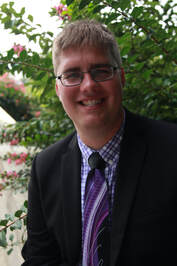
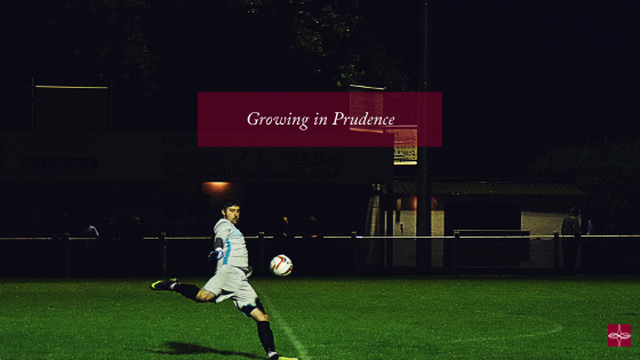


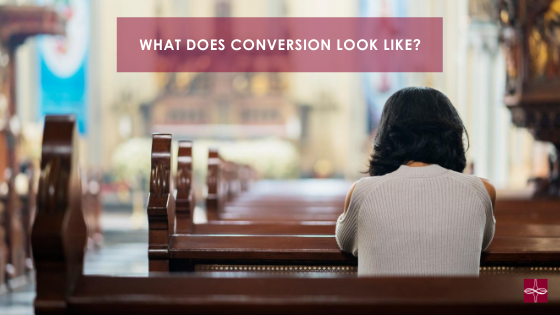






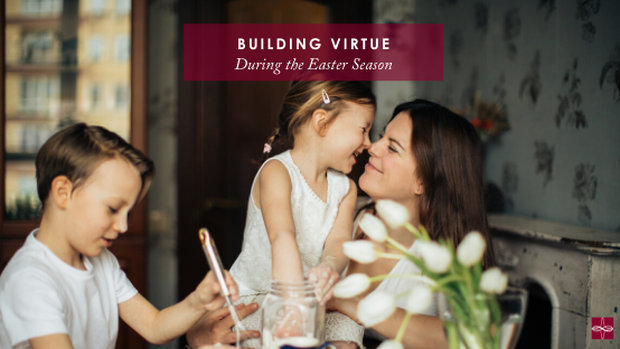

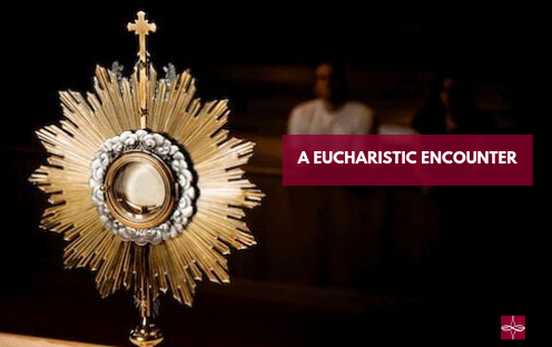

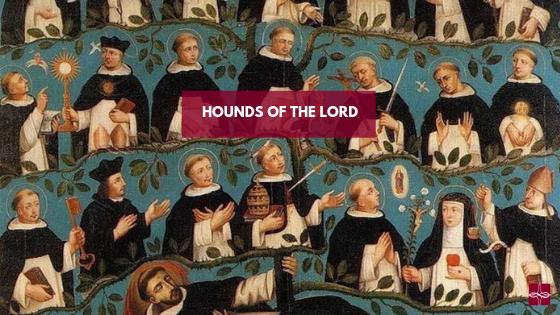



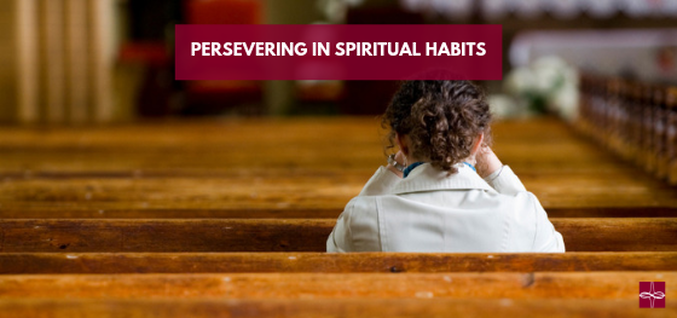

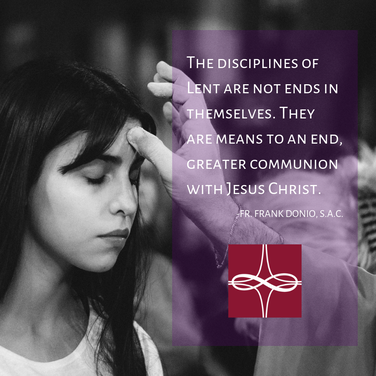
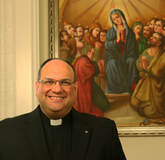
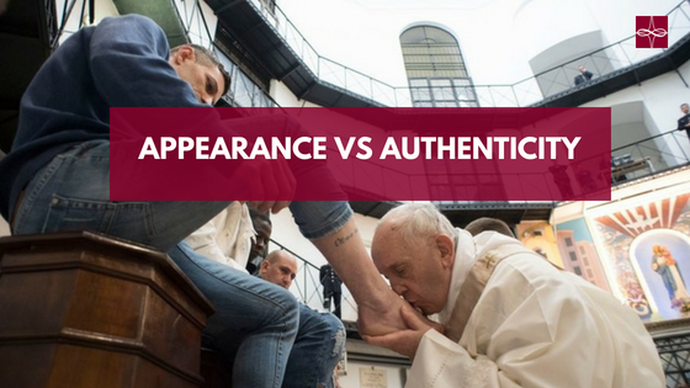

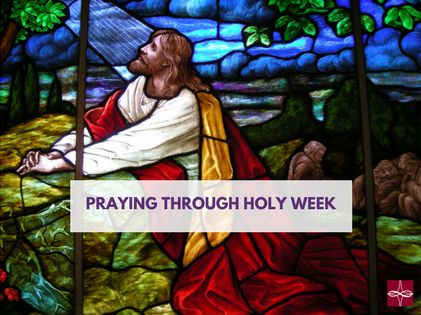

 RSS Feed
RSS Feed